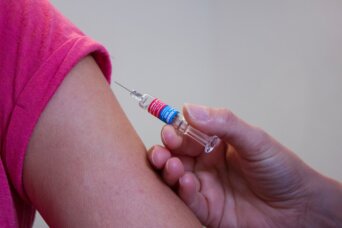- About
- Topics
- Picks
- Audio
- Story
- In-Depth
- Opinion
- News
- Donate
- Signup for our newsletterOur Editors' Best Picks.Send
Read, Debate: Engage.
| topic: | Health and Sanitation |
|---|---|
| located: | Brazil |
| editor: | Ellen Nemitz |
The Covid-19 vaccine is among us. The beginning of immunization in the United Kingdom and the United States brought to the world hope that the end of a pandemic that killed over 1.5 million people could be coming. However, this might not be true if the vaccine is not democratically distributed, and everything indicates that it will not be.
The race for purchasing doses has already begun and the richest countries are far ahead. According to information from a coalition of organisations that integrates the alliance People’s Vaccine, the nations with 14 per cent of the world’s population have already guaranteed up to 53 per cent of most promising vaccines – doses enough to vaccinate three to five times their populations. Meanwhile, 90 per cent of people living in 67 lower-middle-income countries may stay behind.
Even though Latin American nations are working on national plans, each one is at a different stage and most of them may not have doses to immunise at least 60 or 70 per cent of the population – the minimum necessary according to an estimation of World Health Organization – in a short-term, and some may rely mainly on the global endeavour Covax Facility. “In the most unequal region on the planet, vaccination plans face a lack of resources to access doses and infrastructure for maintenance and distribution, as well as increasing politicization with good doses of misinformation,” says an article from El Pais. Indeed: a Brazilian poll indicates that nearly 22 per cent of the population would reject the vaccine if they had the choice. In Peru, a similar rate (25 per cent) of people are against the immunization, following conservative groups and politicians.
In Brazil, the political dispute influences decisions. President Jair Bolsonaro and the Ministry of Health, General Eduardo Pazzuelo, delivered an immunization plan, which prioritizes vulnerable groups, but has no start date, as they would be waiting for the National Health Surveillance Agency (Anvisa, in Portuguese) to authorise. On the other hand, the governor of Sao Paulo, João Doria, has announced (possibly with an eye on 2022 presidential elections) the start of CoronaVac applications on January 25 (the Chinese vaccine is being produced in Butantan Institute), open to people from different regions other than Sao Paulo. The issue is up to the Supreme Court’s decision, new rulings on emergency use are coming into force, but so far there is no real and reliable information and the federal government is being called “homicidally negligent” by the media.
The requirement of the People’s Vaccine organization is that the immunization must be a common good: "This will only be possible with a transformation in how vaccines are produced and distributed — pharmaceutical corporations must allow the COVID-19 vaccines to be produced as widely as possible by sharing their knowledge free from patents.” Besides, in September, the Secretary-General of the United Nations, António Guterres, had already said what remains more urgent than ever: "We need a vaccine for everybody, everywhere — in affordable conditions — because we will only be safe if everybody is safe.”
The next few months will bring an anxious waiting for Latin American citizens – at least for those who believe in the vaccine as an important part of the way toward a "normal life”. However, 2021 seems to come with a big question mark: “Will the same people who were incapable of handling the pandemic be able to handle the vaccine?”, asked the director of global bioethics at the University of Miami, Sergio Litewka, to Bloomberg.
Image by Katja Fuhlert

